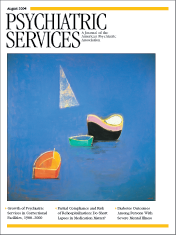In nine chapters crafted with a raw elegance that leaves one in no doubt about the passion that informs them, Paul Farmer, professor of medical anthropology at Harvard Medical School and acclaimed a "visionary analyst" by Amartya Sen, continues his exploration and exposition of the notion of "structural violence" and its role in the production of illness and disease. Celebrated in Tracy Kidder's Mountains Beyond Mountains, Farmer is the author of several books and recipient of numerous academic and humanitarian awards for his work on communicable diseases and diseases that are disproportionately distributed among the poor and the disenfranchised.
The first part of this copiously annotated book is organized around case studies in which Farmer "bears witness" to the appalling suffering and pestilence that he convincingly attributes to "pathologies of power." The second part of the book presents his perspective on human rights, and, for readers who are pressed for time, the final chapter, "Rethinking Health and Human Rights," distills much of Farmer's framework for analyzing and addressing the pathologies he describes.
Farmer, in keeping with the liberation theology that provides the theoretical underpinning for his book, defines structural violence as any offense against human dignity. Such offenses run the gamut from universally recognized egregious acts to the host of more nuanced social inequalities that we have become immured or resigned to, deny, or become smugly justified about: "Haitian factory workers, most of them women, make 28 cents an hour sewing Pocahontas pajamas, while Disney's U.S. based chief executive officer makes $97,000 per hour." In one episode and anecdote after another, from Guantanamo to the former Soviet Union, Farmer lays bare our capacity for living with evidence of profound inequality.
Farmer presents compelling evidence of how "the most basic right—the right to survive—is trampled in an age of great affluence"; argues that "the drama, the tragedy, of the destitute sick" should be the most urgent concern of anyone concerned with human rights; and wonders why physicians and anthropologists have been less than "deeply involved in pressing for social and economic rights." He uses the vehicle of infectious disease, a frontier many consider controllable, to explain the context of injustice, poverty, and malnutrition within which these agents of disease flourish. One is struck by Farmer's evocative models of the causation of communicable disease, in which he leaps beyond the nostalgic era of biologic determinism to explain the "pathologies of power" that "are linked intimately to the social conditions that so often determine who will suffer."
"Not being able to feed our children is the biggest challenge … is every human being not a person?" This plaint from one of Farmer's patients echoes Sojourner Truth and arises from the same rejection of "violations of human dignity" that Farmer unequivocally states are "not to be accepted merely because they are buttressed by local ideology or longstanding tradition." Occasionally repetitive, Farmer's book leaves one searching yet again for specific remedies against the massive barriers to correcting these violations. Nonetheless, the book is for all clinicians who have ever been hounded by or have fled from the notion of being their brother's keeper.

